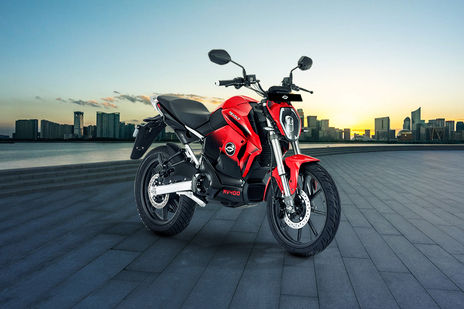Town commuting has handed thru a significant transformation in current years, driven by means of manner of a developing recognition of environmental problems, improvements in era, and the desire for greater inexperienced transportation. most of the myriad options to be had, electric powered bikes (e-bikes) and electric powered vehicles (EVs) have emerged as famous alternatives. This comparative assessment delves into the important thing factors of e-bikes and electric cars to decide that is better suited for city commuting.

Environmental Impact
one of the primary motivations for deciding on electric powered automobiles, whether motorcycles or motors, is their decreased environmental effect compared to conventional gasoline-powered automobiles. both e-motorcycles and EVs produce zero emissions throughout operation, making them environmentally fine options.
Read more.. Elevate Your EV Experience: Top Charging Tips for Electric Car Owners
Electric powered bikes
E-motorcycles have a smaller carbon footprint than electric powered motors. They require much less power to fabricate, and their operation consumes substantially less strength. A observe via the european Cyclists’ Federation discovered that e-motorcycles produce approximately 22 grams of CO2 according to kilometer, together with emissions from energy manufacturing.
Electric powered motors
electric powered automobiles, at the same time as still a good deal purifier than gas motors, have a higher universal carbon footprint compared to e-bikes. The manufacturing of EVs, specially their batteries, is electricity-in depth. however, as renewable strength sources grow to be extra accepted, the overall emissions related to charging EVs are lowering. On common, electric vehicles produce round 106 grams of CO2 consistent with kilometer, accounting for the emissions from power generation.
Read more.. The Financial Matters of Electric Vehicles: Cost Reserve Funds and Long Haul Monetary Advantages
Cost of Ownership
The cost of owning and operating a vehicle is a crucial factor for many urban commuters. Here, we compare the initial purchase price, maintenance, and operational costs of e-bikes and electric cars.
Electric Bikes
E-bikes are generally much cheaper to purchase than electric cars. The price of a good-quality e-bike ranges from $1,000 to $5,000, whereas electric cars can cost anywhere from $30,000 to $80,000 or more. Maintenance costs for e-bikes are also lower, as they have fewer complex components. The primary recurring cost for e-bikes is battery replacement, which can cost between $300 and $800 every few years. Additionally, the cost of charging an e-bike is minimal, with most users spending only a few cents per charge.

Electric Cars
Electric cars have a higher initial purchase price and higher maintenance costs due to their complex systems. Battery replacement for EVs can be particularly expensive, costing several thousand dollars. However, the operational costs of EVs are significantly lower than gasoline cars, primarily due to the lower cost of electricity compared to gasoline and reduced maintenance needs. Charging an electric car typically costs a few dollars per full charge, depending on local electricity rates.
Read more.. The Advantages and Disadvantages of Independent Driving: Looking at the Advantages and Concerns
Convenience and Flexibility
Convenience and flexibility are critical for urban commuters who need to navigate busy streets and find parking in crowded areas.
Electric Bikes
E-bikes offer unparalleled flexibility in urban environments. Their compact size allows riders to maneuver through traffic, use bike lanes, and take shortcuts that are inaccessible to cars. Parking is generally easier and cheaper, with many cities offering designated bike parking areas. Additionally, e-bikes can often be brought inside buildings, reducing the risk of theft. The ability to combine e-bike commuting with public transportation also adds to their convenience.
Electric Cars
Electric cars provide a different kind of convenience. They offer more comfort, protection from weather, and the ability to carry passengers and cargo. However, finding parking in urban areas can be challenging and expensive. Charging infrastructure is improving, but it still requires planning, especially for those without access to home charging stations. Despite these challenges, EVs offer a smooth, quiet ride and can cover longer distances than e-bikes without requiring physical effort from the driver.
Health Benefits
Health is another important consideration when choosing a mode of transportation. While both e-bikes and electric cars have their advantages, they differ significantly in their impact on personal health.
Electric Bikes
E-motorcycles offer unparalleled flexibility in city environments. Their compact size permits riders to move through visitors, use motorbike lanes, and take shortcuts that are inaccessible to vehicles. Parking is usually easier and inexpensive, with many cities providing specific motorcycle parking areas. additionally, e-motorcycles can often be introduced inside buildings, reducing the threat of robbery. The ability to combine e-motorbike commuting with public transportation additionally provides to their comfort.
Electric Cars
Electric cars do not offer the same physical health benefits as e-bikes. However, they do provide a more comfortable commuting experience, which can reduce stress and fatigue associated with driving in traffic. For those with physical limitations or longer commutes, EVs offer a practical and accessible option.
Traffic and Infrastructure
Urban infrastructure and traffic conditions greatly influence the effectiveness of different modes of transportation.
E-motorcycles excel in dense urban areas in which visitors congestion is common. they could bypass site visitors jams the usage of bike lanes and paths. Many cities are making an investment in cycling infrastructure, making e-bike commuting more secure and extra attractive. however, the availability and exceptional of motorbike lanes vary widely among cities, that could effect the overall commuting revel in.

Electric vehicles
electric powered cars are problem to the identical site visitors conditions as conventional cars, which could lead to delays at some stage in top hours. whilst some cities provide incentives such as carpool lanes for EVs, those advantages are confined. The improvement of charging infrastructure is essential for the significant adoption of electric automobiles, but development is choppy across distinct areas.
Conclusion
Both electric bikes and electric cars offer significant advantages for urban commuting, but they cater to different needs and preferences.
Electric bikes are ideal for those who value flexibility, lower costs, and health benefits. They are particularly well-suited for short to medium-distance commutes in cities with good cycling infrastructure.
Electric cars, on the other hand, provide comfort, convenience, and the ability to cover longer distances. They are better suited for individuals who need to carry passengers or cargo, or who have longer commutes where cycling might not be practical.
ultimately, the selection between an electric motorbike and an electric vehicle for urban commuting depends on man or woman situations, along with trip distance, price range, and personal choices. each options make a contribution to a cleanser, extra sustainable city environment, making either choice a nice step toward greener towns.
